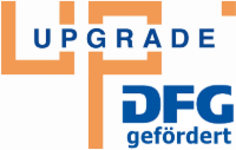Kurzfassung
Teachers’ professional competences -
The interplay of teachers’ beliefs, motivational orientation and personality
Doktorandin: Svenja Matheis, M. Sc.
Betreuung: Prof. Dr. Manfred Schmitt, Prof. Dr. Franzis Preckel
Relevance and Objective
We aim to make an empirical contribution to the discussion on the professionalization of teachers within gifted education by investigating preservice teachers’ beliefs and motivational orientation as substantial aspects of their professional competences. We aim...Teachers’ professional competences -
The interplay of teachers’ beliefs, motivational orientation and personality
Doktorandin: Svenja Matheis, M. Sc.
Betreuung: Prof. Dr. Manfred Schmitt, Prof. Dr. Franzis Preckel
Relevance and Objective
We aim to make an empirical contribution to the discussion on the professionalization of teachers within gifted education by investigating preservice teachers’ beliefs and motivational orientation as substantial aspects of their professional competences. We aim to explain teachers’ beliefs about gifted students and their motivation for teaching them, suggesting an influence of inter-individual differences in personality traits.
Topic
The professionalization of teachers within gifted education: Assessing, examining and explaining the interplay of teachers’ beliefs, motivational orientation and personality for teaching gifted students
Theoretical background
Motivational orientation as well as beliefs are substantial aspects of teachers’ professional competences (Kunter et al., 2013; see also, Baumert & Kunter, 2006). Motivational orientation of teachers comprises cognitive components (i.e., self-efficacy) and affective components (i.e., enthusiasm) which are related to actual classroom behavior (Kunter, Tsai, Klusmann, Brunner, Krauss, & Baumert, 2008; Frenzel, Goetz, Lüdtke, Pekrun, & Sutton, 2009). Teachers’ beliefs comprise subjective theories of teaching and learning as well as subjective personality theories about students, which are assumed to play an important role for the interaction with students in school context (Voss, Kleickmann, Kunter, & Hachfeld, 2013). A case in point is teachers’ personality theory about gifted students. In this project, we like to investigate the relation between teachers’ beliefs and motivational orientation. Moreover, the psychological processes underlying these beliefs and motivation are mostly unknown. Therefore, we aim to explain teachers’ beliefs about gifted students by teachers’ background variables (e.g., experience with gifted students) and by selected personality traits. In detail, we consider teachers’ implicit theories of intelligence, their belief in a just world, their academic self-concepts, their contingencies of self-worth as well as their self-esteem, which could serve as moderators for their beliefs about the gifted.
Methodology
Using an experimental vignette approach, teachers rate fictitious students varying in ability level (gifted/average) and gender (girl/boy). We measure teachers’ beliefs about the gifted and teachers’ motivational orientation with the Teacher-Gifted-Questionnaire (Preckel, Baudson & Glock 2014) that assesses the dimensions of intellectual ability, social ability, adjustment, teacher enthusiasm, and teacher self-efficacy for teaching students. Teachers’ personality traits are measured with well-established questionnaires.
» weiterlesen» einklappen

